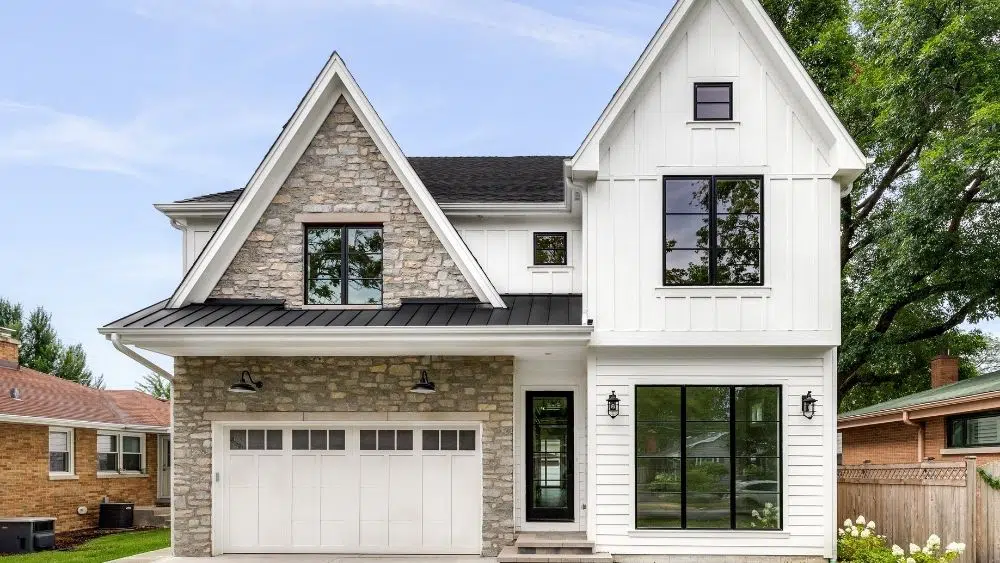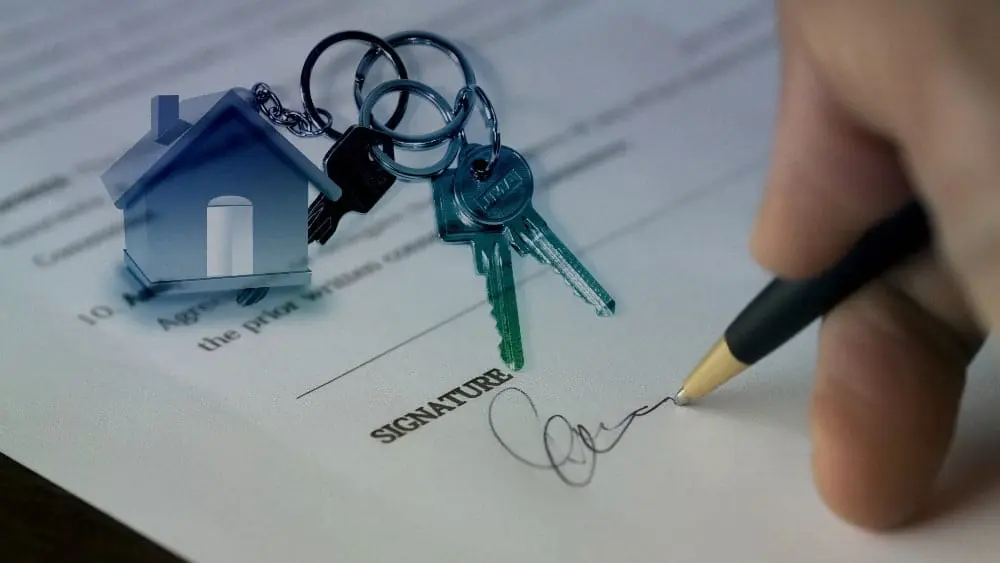
If you’re buying a home in a seller’s market, you need to make your offer stand out, especially if you’ve found your dream home. Sellers have recently been getting 99 percent of the listing price for their homes, according to the National Association of Realtors.
When you’re buying a property in a popular neighborhood, you may be wondering how to best price your offer in case you’re heading into a bidding war. This is where an escalation clause can be a useful tool to help you get a competitive edge.
You can choose to add an escalation clause to automatically outbid other offers. This lets the seller know that you’re serious about your offer and willing to pay more to win the home.
While they may sound pretty straightforward, escalation clauses come with some nuanced details to be aware of. Here’s what you need to know about escalation clauses and how they work.
What is an Escalation Clause?
An escalation clause, also known as an escalator clause, is an addendum that can be added to your purchase offer on a property. If the home you’re hoping to secure might receive multiple offers, you can work this clause into your offer to automatically increase your offer price. This way, you’ll avoid getting outbid.
An escalation clause includes several key components:
- Your original offer of purchase price, or how much you’re initially offering to pay.
- Your escalation amount, or how much more you’re willing to pay above a competitor’s offer price. If you’ve offered $140,000 on a property and another bid comes in at $145,000, for example, you could escalate your offer by $1,000, $2,000, $5,000 — any amount you’re comfortable with — above the highest offer.
- Your price cap, or the maximum amount you’re wiling to pay for the home with your escalation clause at play. Your initial offer on a home may be $200,000 with a cap of $215,000. If another bidder offers $216,000, the escalation clause wouldn’t apply because you’ve identified how high you’re willing to go with your offer.
- Proof of another formal offer. In your purchase contract, you should ask for proof that there is another concrete offer on the table that’s higher than your initial bid to trigger your escalation clause. This way, sellers can’t just use your escalation clause as an excuse to snag a higher sale price. The seller or their listing agent will have to show you a copy of the other buyer’s purchase agreement with their personal information redacted.
Your escalation clause could read something like this: “The Buyer (you) offers to pay $230,000 for the property, but if the Seller receives a bona fide offer that is higher, the Buyer agrees to pay $5,000 more than the highest offer received by the Seller, not to exceed a sales price of $250,000.”

How Do Escalation Clauses Work?
When you make an offer on a home, you’re opening up negotiations with the seller. If you lowball your offer, you may not hear back at all. If the seller has decent offers to choose from, they may ask their two or three prospective homebuyers to submit their highest and best offer before deciding. It can be a stressful ordeal for homebuyers.
With an escalation clause, you skip this back and forth on price negotiations. You’re letting the seller know, on paper, precisely how much you’re willing to pay.
Here’s an Example:
If you made an initial offer of $100,000 without an escalation clause, for example, you may be waiting in the dark to hear back from the seller. If you add an escalation clause that notes that if a higher offer comes in, you’ll offer $5,000 more up to $120,000, your bid is kept in the running in case your initial offer doesn’t make the cut. It’s a good strategy to keep your offer on the table and in front of the seller.
If your initial offer is the best offer, you’ll stick to paying $100,000 and your escalation clause won’t be factored in at all.
When Should I Use an Escalation Clause?
You should use an escalation clause sparingly. They’re reserved for the home you can’t lose out on that you know will garner multiple offers. With the additional clause, you’re agreeing to outbid other offers so your heart has to be set on owning the home and paying more for it. If you have mixed feelings about the home, don’t dive in with an escalation clause.
Ultimately, it’s your decision whether to include the clause or not. Ask yourself the following questions to help as a guide:
- Are you certain there will be multiple offers to compete against?
- Can you walk away from this property or would you be upset to lose it?
- How much are you willing to pay for the home?
- Can you realistically and comfortably pay for the maximum amount identified in the clause?
Understand what you’re signing up for. There’s uncertainty with the escalation clause, so you need to be prepared to pay the maximum amount you’ve set out in your purchase offer. If the clause is what makes your bid the winning offer, make sure you’re happy for this outcome instead of facing sticker shock.
Writing an Escalation Clause
It’s always advisable that you seek legal help with the precise wording when writing an escalation clause. Your competitor’s offer may be $500,000 with $20,000 in closing costs paid for by the seller, making their offer $480,000. You may not want your escalation clause to kick in if you’ve offered $485,000 upfront without any discounts. Including a price cap is crucial too. You don’t want to be on the hook for a final price that you can’t afford.
Keep in mind as well that in some places, you may be required to use an attorney. For example, since 2016, the Texas Real Estate Commission has restricted the use of escalation clauses — homebuyers in Texas can only use them with the help of an attorney so there isn’t any ambiguity with the language.

What About Home Appraisals?
Your escalation clause can help you win a bidding war, but a successful home appraisal is another challenge you’ll have to deal with.
Appraisals are a mandatory part of the home loan process you’ll encounter when you get a mortgage. In a nutshell, your lender needs to appraise the home you’re buying to make sure their loan is a responsible investment. They’ll only lend you as much as the home is valued on the market.
Homebuyers need to include an appraisal contingency in their escalation clause. If you don’t, you could be responsible for paying a heavily inflated price on a property. Your loan may cover what the home is appraised at, but you’ll have to shoulder the difference.
Say, for example, the appraisal values your dream home at $230,000, but your winning bid is $250,000. That’s a $20,000 disparity you’re on the hook for.
Appraisals are a key contingency in most purchase contracts so don’t shy away from including them to protect your back.
What Are the Disadvantages of Using an Escalation Clause?
Adding an escalation clause to your offer won’t guarantee you’ll win a potential bidding war, even if your offer is the highest. Keep in mind, homeowners may have other pressing priorities when looking at offers and may not be fixated on the bottom line.
Why Escalation Clauses Don’t Always Work:
Escalation clauses may not be accepted by every seller. Here are a few of the most common reasons why an escalation clause may get rejected.
They only consider price.
Homebuyers’ offers are rejected for plenty of reasons, not just a low price. Sellers may not like the string of contingency clauses attached to your offer, like a home inspection or making costly repairs and renovations. In other cases, they can’t work with your suggested closing date because they have kids wrapping up their school year.
Some homeowners may even prefer a lower offer that’s a sure-deal provided in cash to a higher bid that comes with a contingency of obtaining adequate financing.
They show your hand to sellers.
Escalation clauses force you to lay your cards on the table and show sellers precisely how much you’re willing to pay for their home until you walk away from the deal.
If you were hoping to add some conditions, such as the seller paying for repairs or closing costs, you may have less wiggle room to bargain.
The seller can’t negotiate with other buyers.
If the seller takes your offer with the escalation clause, they can’t keep negotiations and counteroffers going with other bidders. If there were three strong offers on their home and they decided on your highest offer, they’ll never know if the other buyers would have offered more.
Because of this, it could be advantageous for the seller to stick to counteroffers. There aren’t limits on how much back and forth can go on with these negotiations. This is why some sellers refuse to accept any offers with an escalation clause.
Ultimately, the seller could present you with a counteroffer at your price cap or raise their sales price to that amount and start the bidding process all over again.

What Should I Include in an Escalation Clause?
If you opt to add an escalation clause to your purchase offer, make it count. An effective escalation clause shows sellers they’d really benefit financially from your offer. If you bump up your offer price by only $500 more than the highest bidder, the seller may not care. Make your escalation clause a decent amount to entice sellers.
You need to keep your budget in mind though. Do the math on what your mortgage payments could look like before you draft the clause.
Finally, make sure your purchase offer notes that you are open to negotiating on other aspects of the deal. Relay to the seller what you’re willing to be flexible on, such as move-in dates, repairs or other details. Showing the seller that you are easy to work with and are keeping their needs in mind too might make you their top pick.

Carmen Chai is an award-winning Canadian journalist who has lived and reported from major cities such as Vancouver, Toronto, London and Paris. For NewHomeSource, Carmen covers a variety of topics, including insurance, mortgages, and more.
 Guide to Closing Costs in New York
Guide to Closing Costs in New York